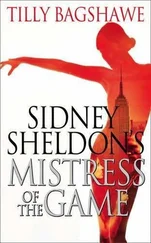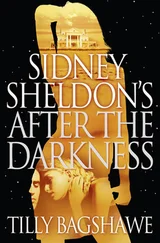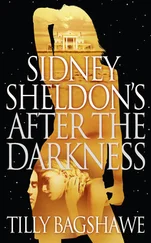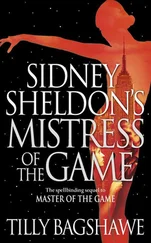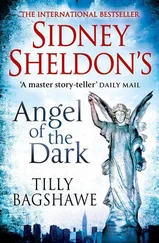Sidney Sheldon - A Stranger in the Mirror
Здесь есть возможность читать онлайн «Sidney Sheldon - A Stranger in the Mirror» весь текст электронной книги совершенно бесплатно (целиком полную версию без сокращений). В некоторых случаях можно слушать аудио, скачать через торрент в формате fb2 и присутствует краткое содержание. Год выпуска: 1976, Издательство: HarperCollins, Жанр: Классический детектив, на английском языке. Описание произведения, (предисловие) а так же отзывы посетителей доступны на портале библиотеки ЛибКат.
- Название:A Stranger in the Mirror
- Автор:
- Издательство:HarperCollins
- Жанр:
- Год:1976
- ISBN:нет данных
- Рейтинг книги:4 / 5. Голосов: 1
-
Избранное:Добавить в избранное
- Отзывы:
-
Ваша оценка:
- 80
- 1
- 2
- 3
- 4
- 5
A Stranger in the Mirror: краткое содержание, описание и аннотация
Предлагаем к чтению аннотацию, описание, краткое содержание или предисловие (зависит от того, что написал сам автор книги «A Stranger in the Mirror»). Если вы не нашли необходимую информацию о книге — напишите в комментариях, мы постараемся отыскать её.
A Stranger in the Mirror — читать онлайн бесплатно полную книгу (весь текст) целиком
Ниже представлен текст книги, разбитый по страницам. Система сохранения места последней прочитанной страницы, позволяет с удобством читать онлайн бесплатно книгу «A Stranger in the Mirror», без необходимости каждый раз заново искать на чём Вы остановились. Поставьте закладку, и сможете в любой момент перейти на страницу, на которой закончили чтение.
Интервал:
Закладка:
“Try him,” Meri added. “What can you lose?”
“My fuckin’ customers!” But he shrugged and walked over to where Toby was sitting. “So you’re a comic, huh?”
“Yeah,” Toby said casually. “I just finished doing a gig in the Catskills.”
The owner studied him a moment. “How old are you?”
“Twenty-two,” Toby lied.
“Horseshit. All right. Get out there. And if you lay an egg, you won’t live to see twenty-two.”
And there it was. Toby Temple’s dream had finally come true. He was standing in the spotlight while the band played a fanfare for him, and the audience, his audience, sat there waiting to discover him, to adore him. He felt a surge of affection so strong that the feeling brought a lump to his throat. It was as though he and the audience were one, bound together by some wonderful, magical cord. For an instant he thought of his mother and hoped that wherever she was, she could see him now. The fanfare stopped. Toby went into his routine.
“Good evening, you lucky people. My name is Toby Temple. I guess you all know your names.”
Silence.
He went on. “Did you hear about the new head of the Mafia in Chicago? He’s a queer. From now on, the Kiss of Death includes dinner and dancing.”
There was no laughter. They were staring at him, cold and hostile, and Toby began to feel the sharp claws of fear tearing at his stomach. His body was suddenly soaked in perspiration. That wonderful bond with the audience had vanished.
He kept going. “I just played an engagement in a theater up in Maine. The theater was so far back in the woods that the manager was a bear.”
Silence. They hated him.
“Nobody told me this was a deaf-mute convention. I feel like the social director on the Titanic . Being here is like walking up the gangplank and there’s no ship.”
They began to boo. Two minutes after Toby had begun, the owner frantically signaled to the musicians, who started to play loudly, drowning out Toby’s voice. He stood there, a big smile on his face, his eyes stinging with tears.
He wanted to scream at them.
It was the screams that awakened Mrs. Czinski. They were high-pitched and feral, eerie in the stillness of the night, and it was not until she sat up in bed that she realized it was the baby screaming. She hurried into the other room where she had fixed up a nursery. Josephine was rolling from side to side, her face blue from convulsions. At the hospital, an intern gave the baby an intravenous sedative, and she fell into a peaceful sleep. Dr. Wilson, who had delivered Josephine, gave her a thorough examination. He could find nothing wrong with her. But he was uneasy. He could not forget the clock on the wall .
4
Vaudeville had flourished in America from 1881 until its final demise when the Palace Theatre closed its doors in 1932. Vaudeville had been the training ground for all the aspiring young comics, the battlefield where they sharpened their wits against hostile, jeering audiences. However, the comics who won out went on to fame and fortune. Eddie Cantor and W. C. Fields, Jolson and Benny, Abbott and Costello, and Jessel and Burns and the Marx Brothers, and dozens more. Vaudeville was a haven, a steady paycheck, but with vaudeville dead, comics had to turn to other fields. The big names were booked for radio shows and personal appearances, and they also played the important nightclubs around the country. For the struggling young comics like Toby, however, it was another story. They played nightclubs, too, but it was a different world. It was called the Toilet Circuit, and the name was a euphemism. It consisted of dirty saloons all over the country where the great unwashed public gathered to guzzle beer and belch at the strippers and destroy the comics for sport. The dressing rooms were stinking toilets, smelling of stale food and spilled drinks and urine and cheap perfume and, overlaying it all, the rancid odor of fear: flop sweat. The toilets were so filthy that the female performers squatted over the dressing room sinks to urinate. Payment varied from an indigestible meal to five, ten or sometimes as much as fifteen dollars a night, depending on the audience reaction.
Toby Temple played them all, and they became his school. The names of the towns were different, but the places were all the same, and the smells were the same, and the hostile audiences were the same. If they did not like a performer, they threw beer bottles at him and heckled him throughout his performance and whistled him off. It was a tough school, but it was a good one, because it taught Toby all the tricks of survival. He learned to deal with drunken tourists and sober hoodlums, and never to confuse the two. He learned how to spot a potential heckler and quiet him by asking him for a sip of his drink or borrowing his napkin to mop his brow.
Toby talked himself into jobs at places with names like Lake Kiamesha and Shawanga Lodge and the Avon. He played Wildwood, New Jersey, and the B’nai B’rith and the Sons of Italy and Moose halls.
And he kept learning.
Toby’s act consisted of parodies of popular songs, imitations of Gable and Grant and Bogart and Cagney, and material stolen from the big-name comics who could afford expensive writers. All the struggling comics stole their material, and they bragged about it. “I’m doing Jerry Lester”—meaning they were using his material—“and I’m twice as good as he is.” “I’m doing Milton Berle.” “You should see my Red Skelton.”
Because material was the key, they stole only from the best.
Toby would try anything. He would fix the indifferent, hard-faced audience with his wistful blue eyes and say, “Did you ever see an Eskimo pee?” He would put his two hands in front of his fly, and ice cubes would dribble out.
He would put on a turban and wrap himself in a sheet. “Abdul, the snake charmer,” he would intone. He would play a flute, and out of a wicker basket a cobra began to appear, moving rhythmically to the music as Toby pulled wires. The snake’s body was a douche bag, and its head was the nozzle. There was always someone in the audience who thought it was funny.
He did the standards and the stockies and the platters, where you laid the jokes in their laps.
He had dozens of shticks . He had to be ready to switch from one bit to another, before the beer bottles started flying.
And no matter where he played, there was always the sound of a flushing toilet during his act.
Toby traveled across the country by bus. When he arrived at a new town he would check into the cheapest hotel or boardinghouse and size up the nightclubs and bars and horse parlors. He stuffed cardboard in the soles of his shoes and whitened his shirt collars with chalk to save on laundry. The towns were all dreary, and the food was always bad; but it was the loneliness that ate into him. He had no one. There was not a single person in the vast universe who cared whether he lived or died. He wrote to his father from time to time, but it was out of a sense of duty rather than love. Toby desperately needed someone to talk to, someone who would understand him, share his dreams with him.
He watched the successful entertainers leave the big clubs with their entourages and their beautiful, classy girls and drive off in shiny limousines, and Toby envied them. Someday…
The worst moments were when he flopped, when he was booed in the middle of his act, thrown out before he had a chance to get started. At those times Toby hated the people in the audience; he wanted to kill them. It wasn’t only that he had failed, it was that he had failed at the bottom. He could go down no further; he was there . He hid in his hotel room and cried and begged God to leave him alone, to take away his desire to stand in front of an audience and entertain them. God , he prayed, let me want to be a shoe salesman or a butcher. Anything but this . His mother had been wrong. God had not singled him out. He was never going to be famous. Tomorrow, he would find some other line of work. He would apply for a nine-to-five job in an office and live like a normal human being.
Читать дальшеИнтервал:
Закладка:
Похожие книги на «A Stranger in the Mirror»
Представляем Вашему вниманию похожие книги на «A Stranger in the Mirror» списком для выбора. Мы отобрали схожую по названию и смыслу литературу в надежде предоставить читателям больше вариантов отыскать новые, интересные, ещё непрочитанные произведения.
Обсуждение, отзывы о книге «A Stranger in the Mirror» и просто собственные мнения читателей. Оставьте ваши комментарии, напишите, что Вы думаете о произведении, его смысле или главных героях. Укажите что конкретно понравилось, а что нет, и почему Вы так считаете.



